B2C marketing, or business-to-consumer marketing, targets individual consumers to generate customers and sales for an organisation. It is the business world’s most common business model, and the form of marketing most people will be familiar with.
B2C is often mentioned alongside B2B marketing, or business-to-business marketing, which occurs when one business markets its products or services to another business. In fact, many companies will use both B2C and B2B marketing for their products and services. But while there are some similarities between B2C marketing and B2B marketing, there are key differences, too
What’s the difference between B2C and B2B?
Some of the biggest differences between B2C marketing and B2B marketing are:
Audience
The key difference between B2C and B2B is, of course, the intended audience. While B2B marketing is geared towards the purchasers and decision-makers within businesses, B2C casts a much wider net. For example, a business that sells everyday cleaning or food products can appeal to almost anyone. And even when targeting more niche groups of people as potential customers, B2C will typically be working with a much deeper pool of people than B2B.
Style
This difference in audience also means that the style of marketing differs significantly between B2C and B2B. In B2B, for example, marketing is more data-focused, informational, and direct, knowing that businesses will conduct more research and follow due-diligence processes before making purchases. B2C, however, works on the knowledge that individual consumers typically make purchasing decisions more quickly – even impulsively – so will try to trigger an emotional reaction that connects the consumer with the brand, the product, or the service in question. This can influence the language and style of the marketing, as well as the marketing channels used to reach people.
Sales methods
Another big difference between B2C and B2B comes down to where purchases and sales happen. While B2B usually operates with dedicated salespeople and account managers building relationships with clients, B2C will encourage people to visit an in-person shop or e-commerce website, and is a more transactional buying process. The customer experience is still important, but will be less personalised to individual people within B2C. That said, B2C companies have more direct contact with end users of their products and services, and this can be an effective means of building customer relationships, customer loyalty, and sales conversions.
Other differences include:
- Transaction size. Typically, B2C purchases are much smaller than B2B purchases. While some things, such as cars or appliances, might cost B2C customers more, B2B sales are made on behalf of a whole business, so might include machinery, equipment, stock, or large quantities of goods.
- Customer journey length. While B2B purchases typically need to go through layers of organisational research and approval, B2C purchases are made much more quickly, greatly reducing the length of the sales cycle.
- Cost of marketing. On average, B2C marketing is less expensive than B2B marketing, because it involves fewer people and takes less time, thanks to the shorter sales cycle.
B2C marketing strategies
B2C marketing is a fast-paced, ever-changing environment. Marketers have to stay on top of consumer trends and customer behaviour patterns, and predict how a market might change in future. It’s a tall order, but achievable with:
- a good understanding of competitors’ products and marketing tactics
- robust analysis of customers’ purchase habits
- appropriate marketing strategies and plans.
Some of the most effective B2C marketing strategies include digital marketing efforts, such as:
- Social media marketing campaigns. Social media channels are a really cost-effective space to conduct marketing, so they’re popular with everyone from big corporations to small businesses. Campaigns can include anything from contests to jumping on an existing viral trend, and they’re a great way to directly connect a business with its potential consumers. They’re also a great place for businesses to tip their toes into marketing automation, using dedication automation tools to streamline their social media efforts.
- Influencer marketing. Influencer marketing involves working with an existing social media influencer, someone whose audience is similar to the target audience or demographics of a B2C business, and who is trusted by their audience. This work can include product placements or endorsements from the influencer.
- Content marketing. B2C content marketing is a great way to build brand awareness. It involves creating and sharing high-quality content that’s of interest to an organisation’s target demographic and can help create new customers and generate consumer purchases. For example, a business might create webinars or a podcast about how to effectively use their products or services, and share this in relevant channels, such as YouTube, LinkedIn, or Facebook.
- Web SEO (Search Engine Optimisation). One of the top priorities when developing content for a business website should be SEO. Good SEO means that content is likely to surface near the top of search results in Google and other search engines – and this ensures the business will be top of mind when people are looking for relevant products and services. Amazon, for example, effectively employs SEO practices, and often appears at the top of Google in product searches for everything from toys and books to power tools and furniture.
- Email marketing. Email is one of the most popular types of marketing for B2C, because it’s an easy, affordable way to communicate directly with consumers. Through everything from newsletters to promotions, businesses can acquire new customers, retain existing customers, and build interest and trust in their brand.
And in addition to digital marketing plans, there are other B2C strategies that can be effective for B2C brands. Some of these include:
- Membership programmes. Businesses can encourage repeat consumers through membership programmes that reward customers for their purchases and loyalty.
- Special offers. Special offers attract new and repeat customers, increase sales, and help clear out old stock.
- Pop-up shops. Also known as pop-up retail, pop-up shops are a great way to create buzz for a brand. They typically see a brand setting up a temporary shop or storefront – one in a location with high foot traffic – and can really boost customer engagement. They’re also a useful way of conducting market research, launching a new product, or testing a new location.
Become a B2C marketing expert
Marketing is an ever-changing field, and that’s even more true with B2C, which has to stay at the forefront of new trends, channels, and tactics, to keep up with consumers.
You can keep ahead of the curve and fast-track your career with the MBA Marketing at the North Wales Management School. This flexible master’s degree will help you develop key knowledge and skills in areas such as strategic marketing, innovation and creativity, as well as understanding and leveraging macro trends. It’s also offered 100% online, so you can study around your current work and personal commitments, and earn while you learn.




